
Purplewashing: what is it and how to avoid it?
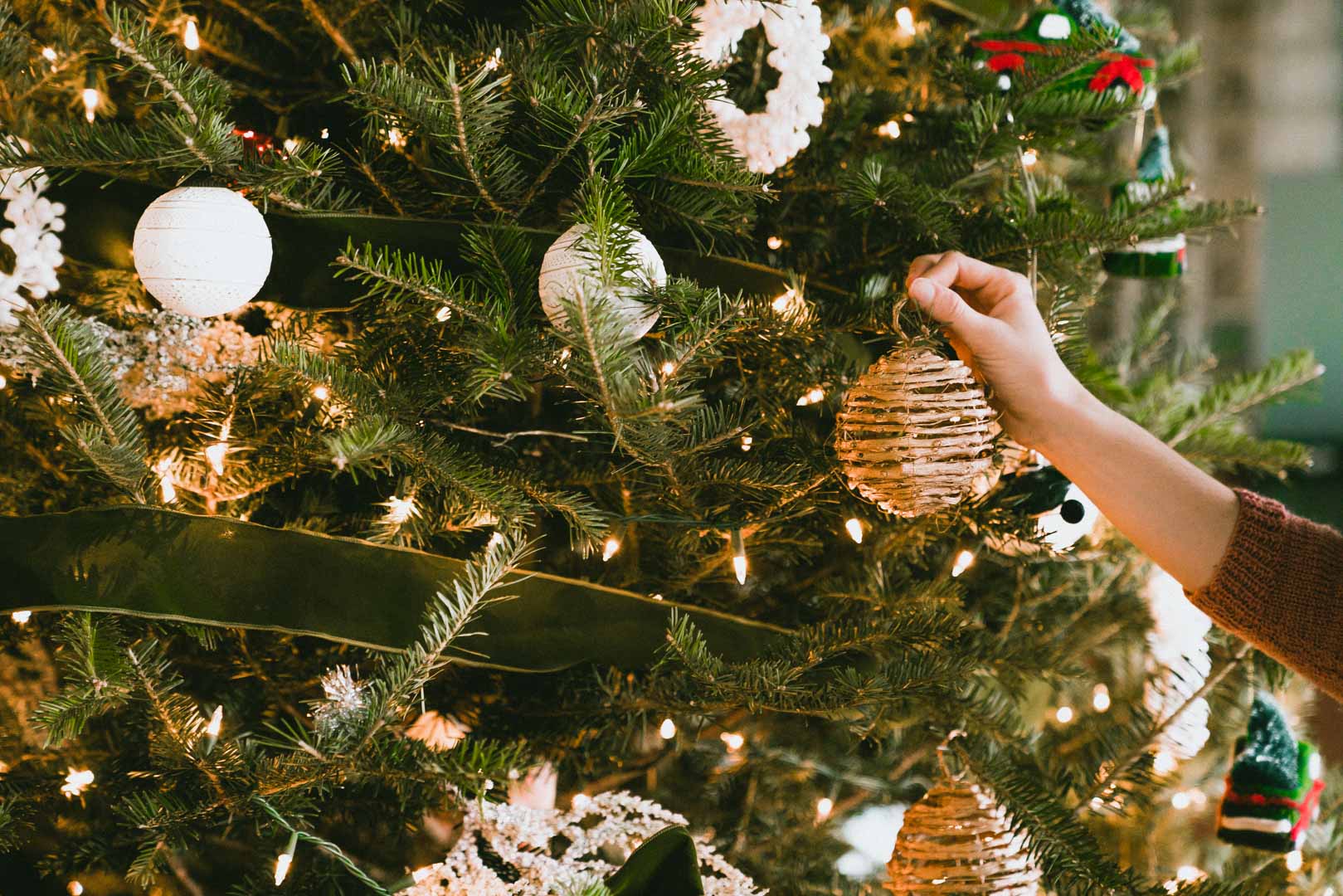
We all do the very best we can to limit our environmental footprint every single day. But it’s easy to forget all the sacrifices made throughout the year when the Holiday season rolls around. Plastic trees and decorations, consumerism at its peak, holiday wrapping that can’t be recycled, and the list goes on…
Here is our ultimate guide to an eco-friendly Holiday, including tips and tricks on reducing, reusing, or substituting.
Pictures by MANNY
First up, probably the essential part of the Holidays: food. There are so many different ways to be eco-friendly when making food - sometimes all we need is a little reminder. Here are some of our best tips.
The best time to eat local is during the holidays. We buy so much food during this period that purchasing a turkey from the farmer across the bridge and cranberries from the market will not only taste better; it’ll send a strong message to grocers - bring in more local food, all year round! Avoid exotic fruits and go for foods that are in season.
It’s often less expensive, and you save on packaging. Win-win!
For those of us lucky enough to live close to zero waste grocery stores, it’s pretty simple. Here are some local shops to check out: Vrac & bocaux, Mega Vrac, Loco, Frenco, BocoBoco, or even your local Bulk Barn. But you can also bring your containers in bigger supermarkets. A few months ago, IGA and Metro started granting the option to bring your receptacles to their meat, pastry, fish, and fresh meals counters.
For what is left, there are ways to reduce your environmental footprint at a regular grocery store. Choose the veggies that aren’t wrapped in plastic as much as you can and pack loose vegetables in mesh bags sold by local makers, like Credo Bags.
Otherwise, a simple way to shop in bulk is by going to the farmer’s market. Bring your reusable bags to pack your food in, and that’s it!
Give your dinner a retro vibe by buying second-hand dishes or borrowing the pieces you need from friends and family. If you must use single-use tableware, make sure you buy the kind you can throw in the compost bin, like these suggestions: L’Escale Verte or Les Emballages Florisec.
Since meat requires a lot of water for its production and also produces a considerate amount of CO2, it can be a noble idea to consider a few vegan options. Even meat-eaters will appreciate these alternatives to our favourite Quebecois classics!
Seitan bourguignon
Vegan tourtière
Tofurkey
Vegetarian lasagna
Most leftovers are either thrown away or frozen into oblivion, forgotten, then thrown away. Instead, try reinventing your leftovers by including them in other recipes! Get creative; why not fill your grilled-cheese with some cranberries sauce leftover or create a hot-chicken with your turkey from the night before? For more ideas on how to reduce food waste, visit Chic Frigo Sans Fric blog.
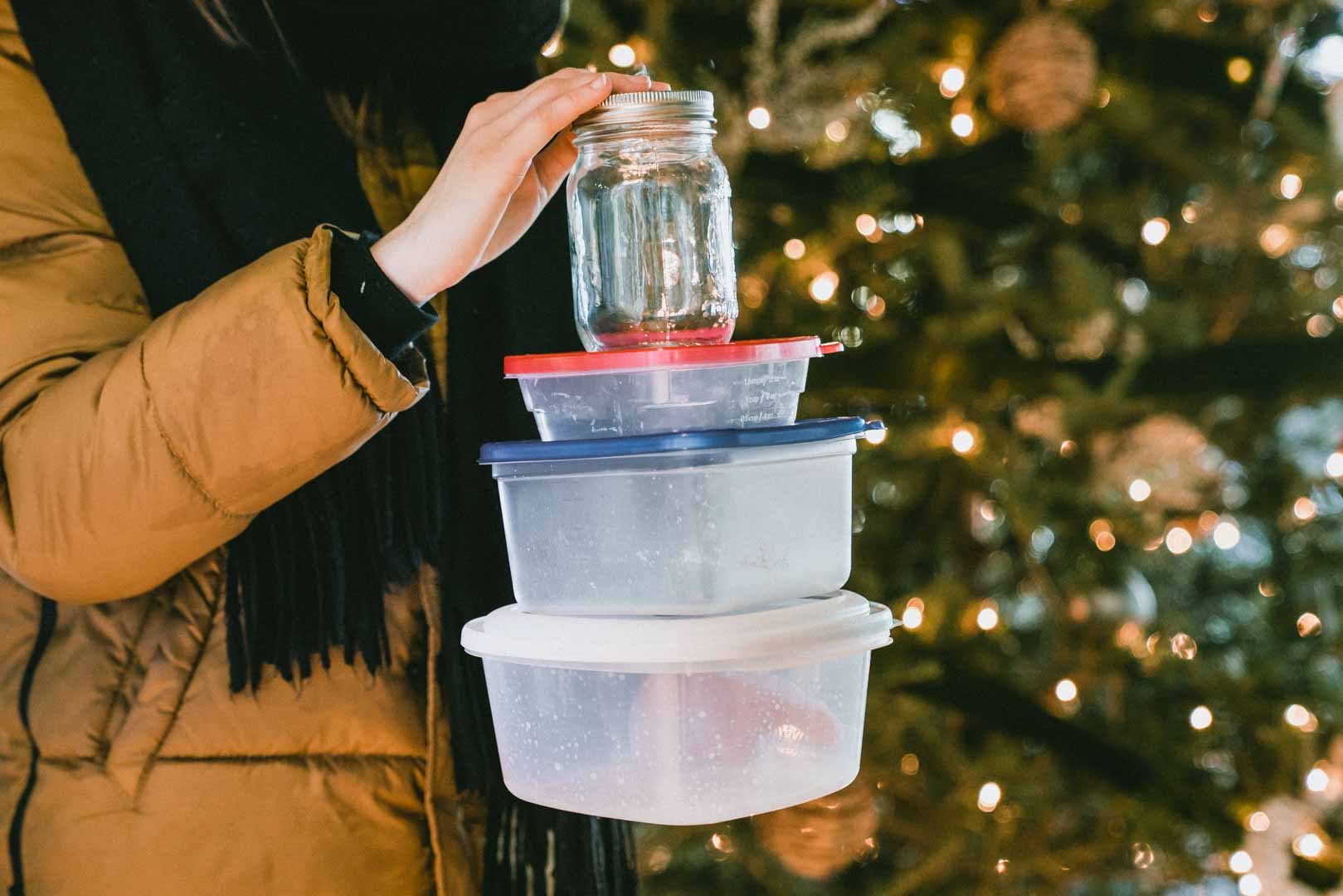
Gift-giving is one of the leading waste culprits during the Holidays. Hundreds of dollars spent on gifts that don’t get any use, tons of wrapping paper thrown in the garbage… It can get messy, but gift-giving is such a big part of the Holidays, it’s not something most people are willing to give up.
So, here are some eco-friendly gift ideas, and a few different ways to wrap them sustainably.
It could be a spa date, a hiking adventure, a weekend at a cottage. Experiences and outings can bring so much more emotional value, and is a great way to avoid packaging and wrapping!
Nothing beats locally-made presents. Here are a few articles that suggest great Quebec-made gift ideas:
Idées Cadeau au Québec
15 local gift ideas by Le Journal de Montréal
Puces Pop Winter Edition
C’est beau
If you have an old table cloth, a curtain, tea towels, or any fabric lying around the house, use it! If it can have a second (or third life..!) afterward like a tea towel, for example, even better. It’s the gift that keeps on giving!
If you don’t have any fabric lying around, you can purchase some in large quantities at a fabric store and cut it into the number of wraps you need.
Here are a few how-to videos on wrapping your gifts with fabric:
Here,
Here,
and here.
Instead of bows and ribbons, which are mostly made of plastics or other non-recyclable materials, try using pine cones or dried flowers and herbs to decorate your gifts (our personal favourites are dried lavender and eucalyptus!)
Starting to lean towards a zero-waste way of life can be intimidating. Simple starter packs, including substitutes for saran wrap, plastic bags, toothbrushes, straws, and more, can help your friends and family jump on the zero-waste bandwagon with little to no effort! Here a few options:
Etsy
Folles d’ici
Dans le sac
Ola Bamboo
The most eco-friendly kind is either brown kraft paper or 100% recycled packaging paper with a high content of post-consumer fibres, treated without chlorine, and printed with vegetable ink.
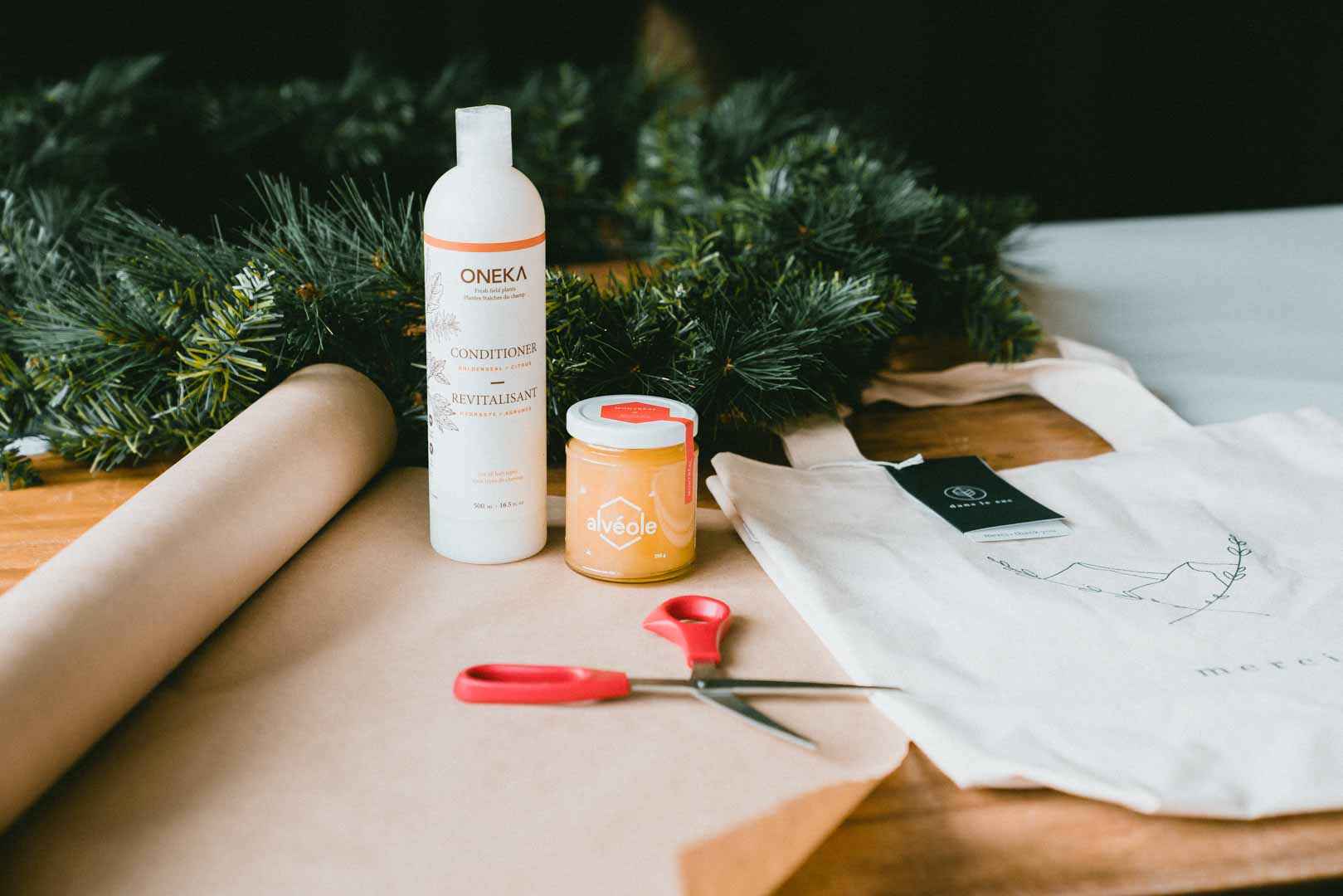
We all love a good party, amiright? Here are some ideas for hosting a party without making a mess, AND that is eco-friendly. As a bonus, we even have some suggestions for choosing outfits!
Here are a few of our favourites:
Oshlag beer and spirits
Polisson cidres
Vin dans les voiles
These catering services have tons of choice, offer compostable cutlery, and will transport the food in real dishes that they pick up the next day, so no single-use plastic or waste!
Mâche
Zeste Éco
Bernard & fils
Avec plaisir
Délices du terroir
No cars, no designated drivers! (And the planet will thank you.)
Limiting consumerism, encouraging local businesses, wearing designer duds, and it’s cheap? Yes, please, thank you very much. We’ve tested some of these services ourselves, and we all agree: they’re lifesavers.
Atelier Privé dress rentals
Loue1Robe & Lou1Tux: Outfit rentals for men and women
Chic Marie casual outfit rentals
Station Service: designer outfits and accessories
La Petite Robe Noire dress rentals
Empower your guests to sort their garbage themselves - post a sign on each tray so guests can put their discarded items in the right one. Recyc-Québec answers all your interrogations linked to recycling with a useful checklist during the Holiday season.
With thrifting becoming the new big trend, second-hand stores are more and more stocked with quality pre-loved clothing. Spend an hour or two at your local thrift shop, and you’re sure to find some surprising and unique pieces. You might even find a few gifts!
Annex Vintage
Empire Mtl
Ruse Boutique
lnf Shop
Ex-Voto
La Caravane Vintage
Citizen Vintage
KILOfripe Vintage
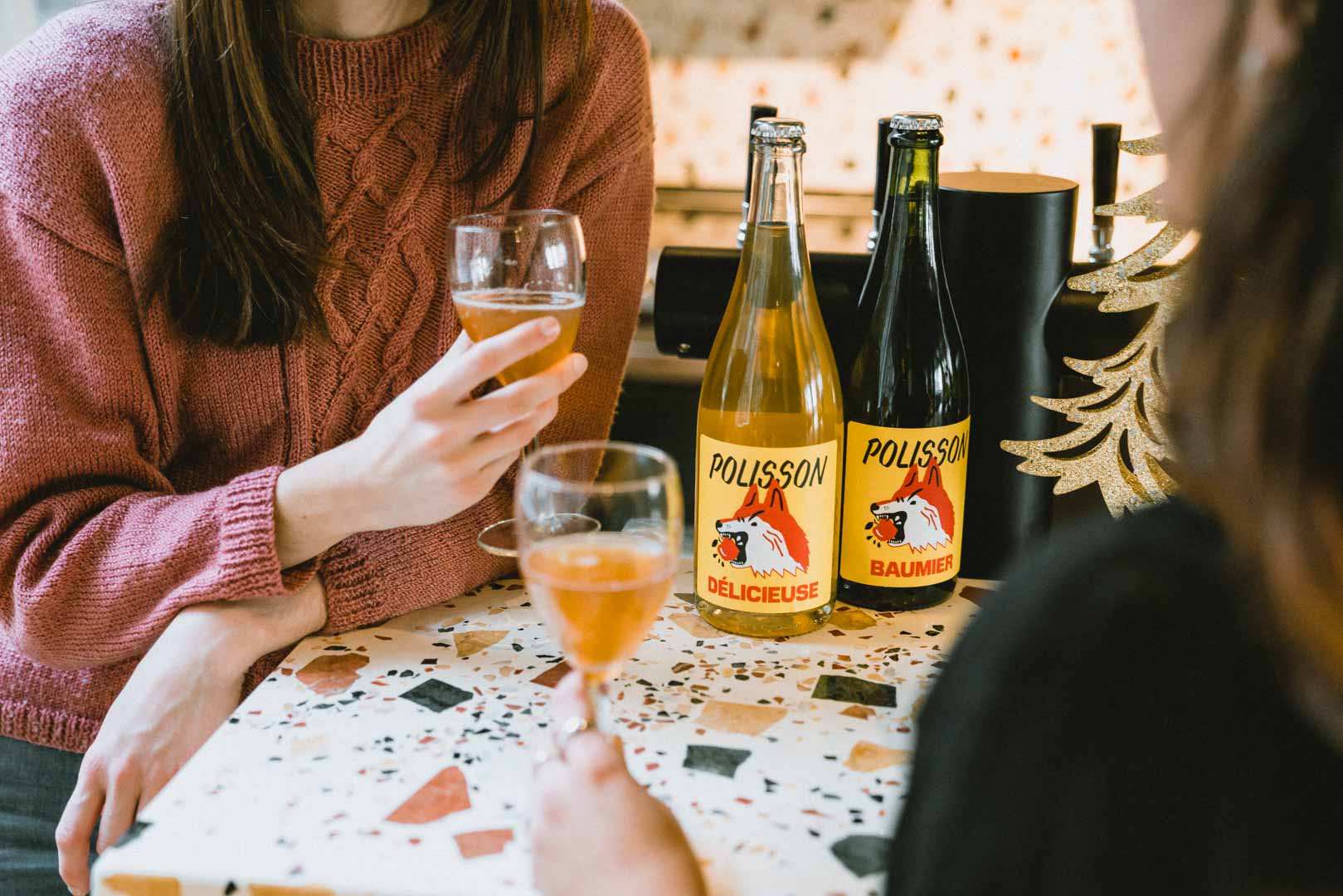
Another of the worst waste culprits during the Holidays is decorations. Luckily, it’s easy to do it sustainably.
We all love a good DIY! We won’t go into all the different decorations you could make here; there are already tons of blog articles that exist (cough. Pinterest. cough.)
Give old decorations a second life! Thrift stores are a gold mine for inexpensive wreaths, bows, and baubles. Bonus points if they go back to the thrift store afterward, so someone else can get their hands on them!
Ahh, the age-old debate. Which one is more eco-friendly? Well, thankfully, The David Suzuki Foundation solved the mystery for us: artificial trees must be used for at least 20 years to be more environmentally friendly and less damaging to the environment.
So, unless you plan on keeping the same tree for 20 years, the more eco-friendly choice would be a natural tree. Here are a few tips if you want to take it a step further:
Buy a local tree
Choose one from a farm that minimizes the use of pesticides and herbicides
Obtain a provincial permit to cut your own tree
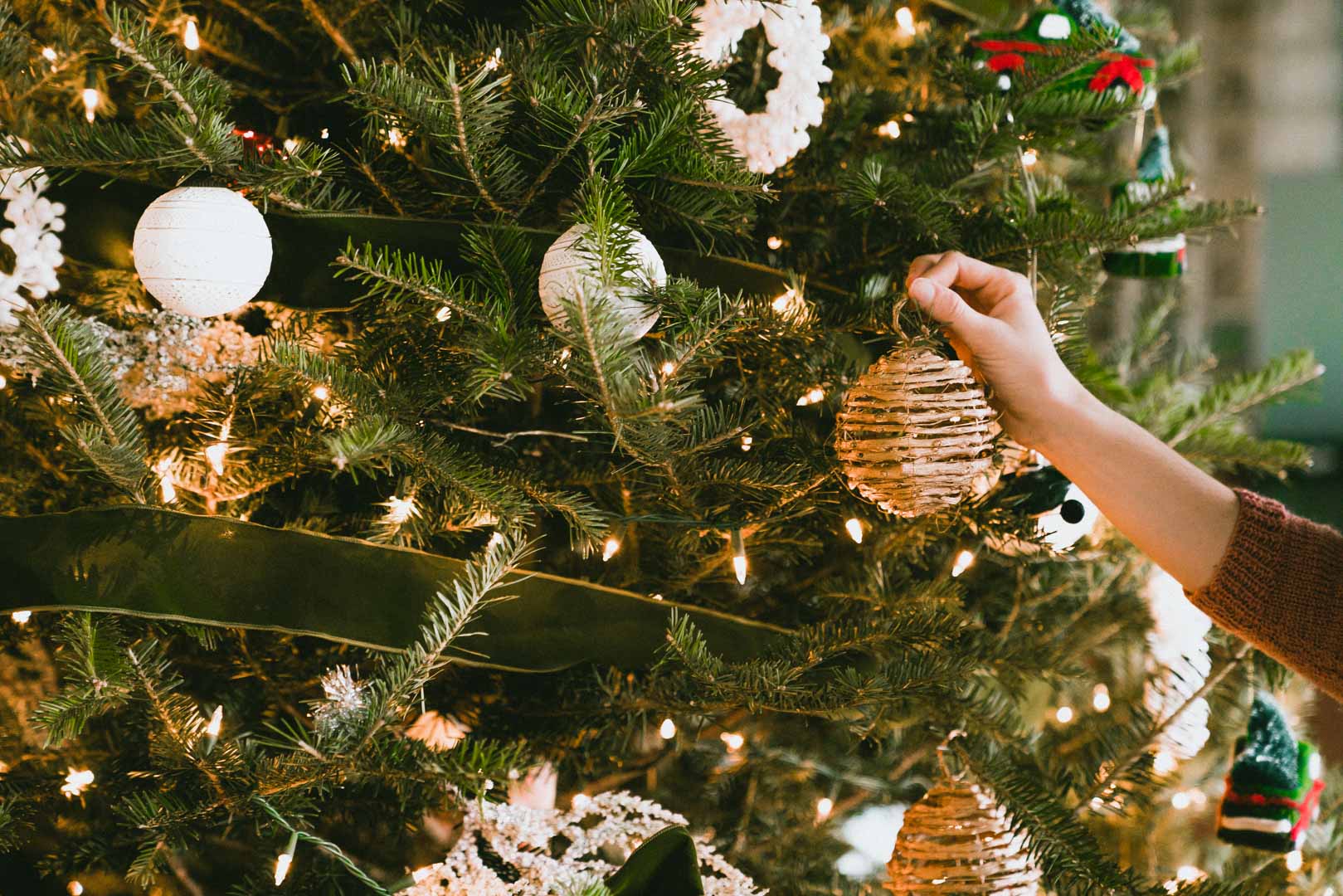
Hopefully, this guide will have helped and inspired you on your journey to a sustainable Holiday season. Write to us on Facebook if you followed some of our tips, we want to hear about your experience!
Happy Holidays from the Republik team!